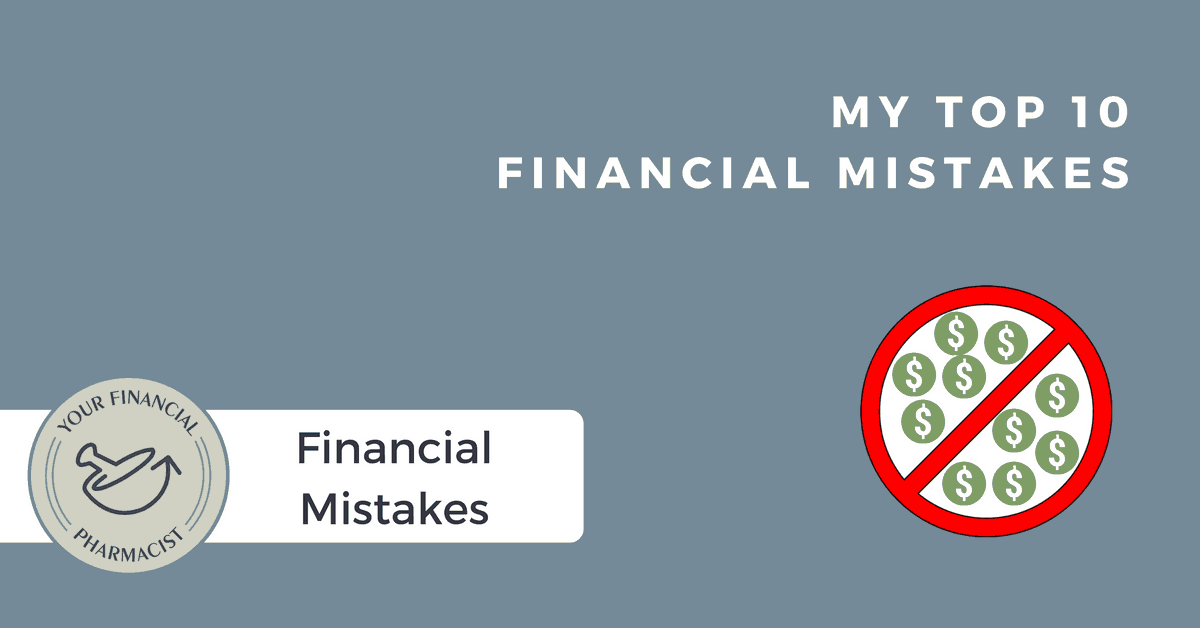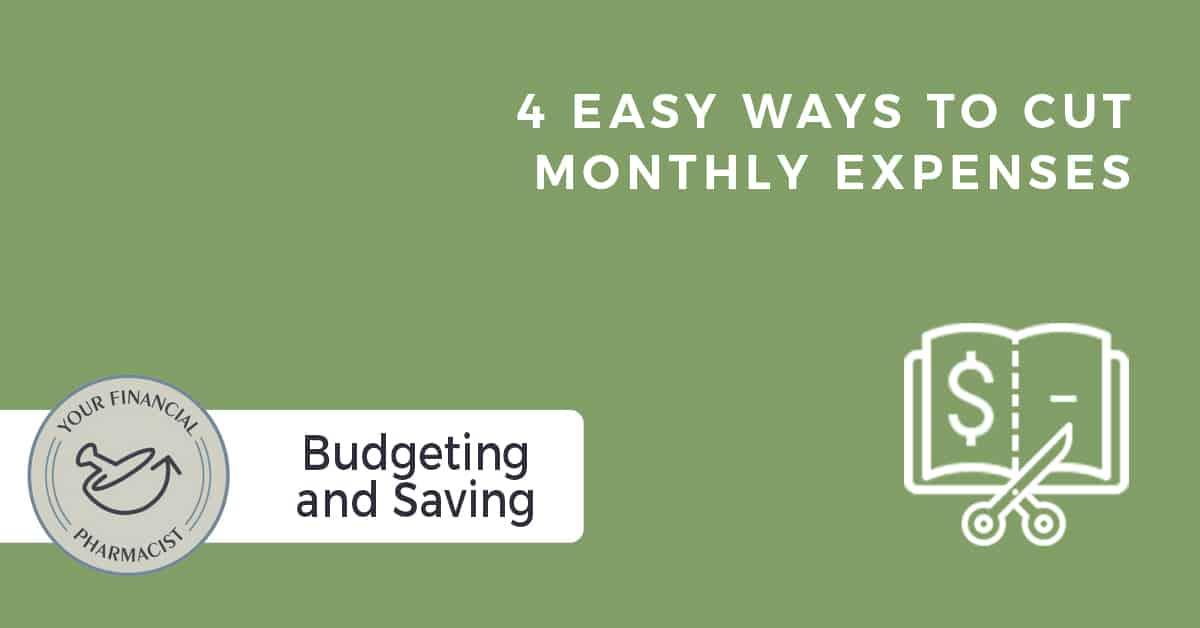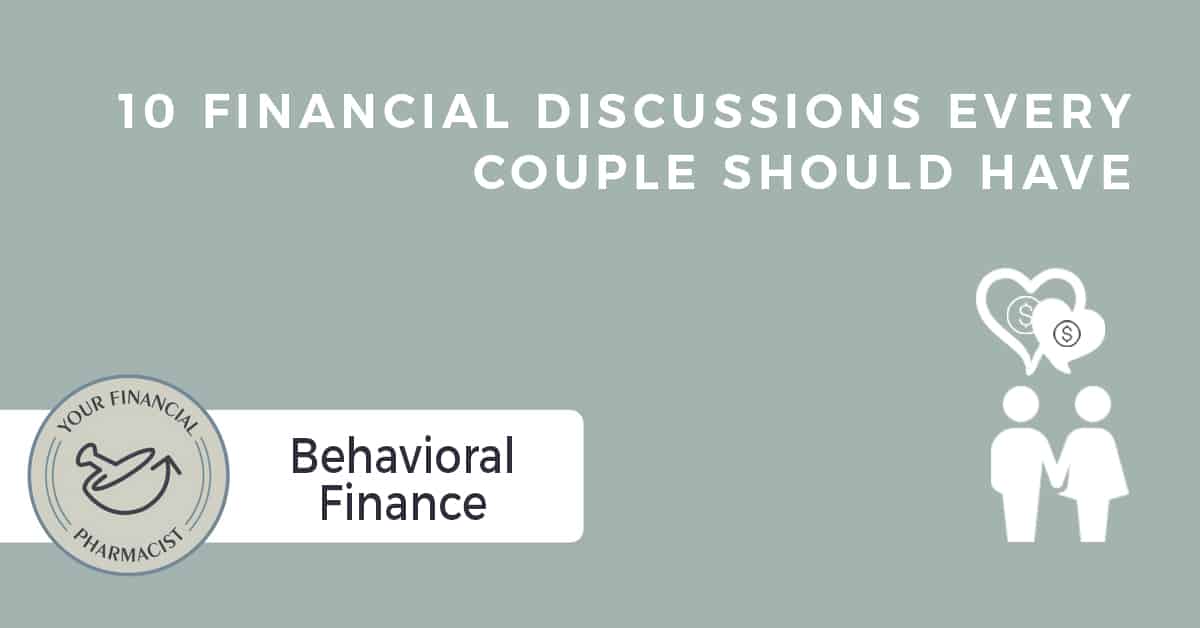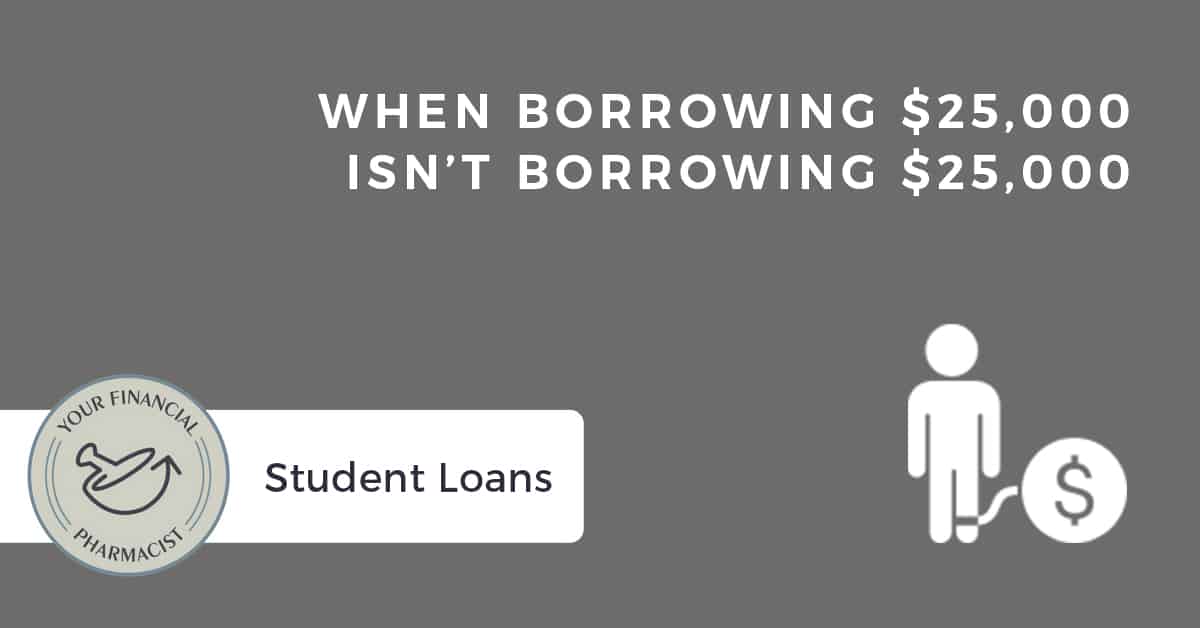While Jess and I made some great decisions along our journey to pay off $200K in debt, there are some that I certainly wish we could have back. I recognize there is nothing we can change about these decisions now. My hope is this list will prevent at least one person from making one or more of the same mistakes that I did. It took me a while to hit send on this one since some of these are pretty embarrassing. Nonetheless, here they are…my top 10 financial mistakes.
#1 – Buying a house without 20% down
Jess and I moved to Munroe Falls, OH in the summer of 2009 when I started at Northeast Ohio Medical University. Not knowing the area, we rented for a year and then decided to buy a house in 2010. We got the itch to buy a home and the offering of the first-time homebuyer tax credit exacerbated that itch. As a result, we only put 3% down to get into our house. While the monthly payment for our mortgage was well within our means, we could have waited one more year and banked enough money to put at least 20% down.
I see three main reasons why it is good to put 20% down on a home, even with historically low interest rates. First, with 20% down, you will not find yourself in a situation where you have to pay private mortgage insurance. Second, you are more likely to buy within your means, especially if you desire to get into a home sooner rather than later. Think about it. If you hold yourself true to waiting until you have 20% down but at the same time are eager to get into a home, you will likely lower the price range of homes you are looking at so you can make that happen faster. Third, when you put a chunk down such as 20%, you instantly have some equity in your home so if the market goes down and/or you find yourself in a situation where you have to move sooner than you anticipated, you will be in a better position. Remember, mortgages are structured so the interest is frontloaded so it takes time to build up equity in the home by paying down the principal.
#2 – Delaying the purchase of life insurance
Delaying the purchase of term life insurance when you have a family that depends on your income is outright stupid. Go ahead; call me stupid, I deserve it. I’m not sure what I was thinking. Yes, I had some life insurance coverage through work (1x my annual salary) but nowhere near enough for what you would want to have in place (e.g., 8-12x your annual salary).
I currently have a 20-year term policy just shy of $1 million dollars in coverage that costs only $38 per month. Over 20 years, my payout in premiums will be just over $9,000. That is a pretty good investment for $1,000,000 of protection if my family were to need it in the event of my death within the next 20 years.
#3 – Trying to balance too many financial priorities at once
Jess and I were trying to balance a bunch of financial priorities at once. The problem is that we weren’t doing any of them very well. We were trying to pay extra on the house, save for retirement, start saving for kids college, build up an emergency fund and pay off student loans…all at the same time. While we were doing all of them OK, we weren’t doing any of them particularly well. There is something to be said about focusing on one thing and for us that one thing should have been getting out of our student loan debt as fast as possible so we could start focusing on the other priorities.
I’ve talked to too many new pharmacy graduates with loans that have interest rates above 6% and while trying to pay off those loans, they are also trying to balance buying a home, purchasing new cars, saving for retirement, and so on. Here is the thing. If you have high-interest rate debt (e.g., 6-8% student loans or credit card debt at an even much higher of an interest rate) there is little to debate. Pay it off as fast as you can. This should be your top priority unless you are banking on something like loan forgiveness. Where it gets sticky is when you have low-interest debt (e.g., car loan at 0.9%). Many will advise that it is not wise to pay off low-interest-rate debt at the expense of saving that money. That is an OK decision as long as you are actually saving that money which is often not the case. Why am I a fan of paying off debt no matter what the interest rate? By focusing on maximizing your debt payment within your monthly budget, you naturally limit your other expenses.
#4 – Waiting 7 years to create a ‘legacy folder’ including the will
For whatever reason, the idea of putting together a will seemed intimidating and time-consuming. While it wasn’t as critical when it was just Jess and me, it should have been much more critical when we had the boys. Amongst other things, the will covers what we would like to happen with our kids upon our death. We have all heard nightmare stories of custody issues that happen as a result of someone not having a will in place. As with many things we tend to drag our feet on doing, it wasn’t that bad after all. We used an online will-making site and had it done in under a couple of hours.
As Jess and I were going through Financial Peace University at our church, one of the lessons brought up the idea of creating a ‘legacy folder.’ Essentially, this is one place where you store all of your financial documents and important information so that in the event something happens to you; someone else can quickly get access to what they need to. If you are in a relationship where one person does most of the financial-related tasks in your household, this is even that much more important!
Putting together the ‘legacy folder’ took several hours but it was well worth it. In one place, we now have all of our financial documents. That is a great feeling.
#5 – Taking out student loans without knowing what was involved
I think most of us are guilty of this one. Taking out debt without knowing what we are getting into. For me, it was not understanding what my student loans were all about. I was 18 years old starting pharmacy school and the last thing I cared about was what a subsidized versus unsubsidized loan was or how the interest rate could compound over time at such a nauseating pace. Furthermore, I had little understanding of the repayment options and the advantages or disadvantages to refinancing and consolidating.
#6 – Cashing out retirement funds
I told you some of these were embarrassing and this one might top that list. After Jess decided to leave work to stay home with our boys, she had a couple of retirement accounts floating around from two different employers. For one employer, they kept changing accounts and I would constantly get letters mentioning the account was transitioning to a new plan sponsor. I was having a hard time getting access to these accounts so the money was sitting in a money market fund (this could be a whole separate point in this top 10 list). I got frustrated and since we were trying to pay off debt, we ended up cashing these out. Granted, it did go towards our debt that had interest accruing so that was a plus. However, we ended up paying income tax on the distribution as well as a 10% penalty for early withdrawal. As Dave Ramsey says, that is “stupid tax.”
#7 – Buying a car I had no business buying
In December 2014 as Jess and I were nearing the end of paying off our student loans, I bought a used Lincoln MKX. It was nice. Really nice. Leather heated seats, a moon roof, and an awesome sound system. Here is the problem. I had no business buying this car since I had a perfectly functioning Nissan Sentra with less than 50,000 miles on it. While the Lincoln was used and we paid cash for it, it still cost us $12,000 after we turned in the Sentra. That could have been $12,000 to get out of debt earlier or $12,000 to build up an emergency fund or $12,000 to save for retirement or $12,000 to save towards the kids’ college fund or $12,000 to go on vacation for a few years…you get the point.
According to Edmunds.com, the average monthly payment on a new vehicle in the US is $479. Ouch. If someone is struggling with debt and/or getting control of their monthly expenses, this is often the first area I recommend taking a look to cut back. You won’t miss your car as much as you think you will. I ended up selling the Lincoln MKX 6 months after I bought it (more ‘stupid tax’ to pay). In turn, I purchased a used Nissan Altima with 87,000 miles from my mother and father-in-law. After selling the Lincoln MKX and purchasing the Altima, the difference became our last student loan payment!
#8 – Opening a Lowe’s credit card
As with many store credit cards, we got sucked in by the 5% savings. The problem was that by having that card, we eventually decided to do a kitchen remodel that we probably would have waited on if we didn’t have the card. We could have saved up to pay for it in cash within 4-5 months but we got the itch. We ended up paying it off within a few months of the remodel being finished but still had to pay some interest we wouldn’t have had to otherwise pay.
#9 – Waiting to have a budget
This one is pretty simple yet we, like many others, didn’t have a budget in place for some time to plan and track our income and expenses each month. We were not outspending our income (which was good) but quickly realized it is a WHOLE new world to prioritize and strategize where our income should be going each month rather than reacting to where it went. What was the result for us when we decided to get serious about a monthly budget? Freeing up approximately $2,000 per month that was able to pay off our debts and then fund an emergency fund.
#10 – Misunderstanding about the priority of giving
While Jess and I were constantly giving throughout our journey to pay off $200K in debt, the giving was an afterthought. After all, we had other ‘priorities’ to take care of. In hindsight, this is laughable considering we created those ‘priorities.’ When we started making this a priority by giving the first % of our income, something magical happened. Our hearts changed towards doing this. We were humbled with what we had been given to us rather than trying to chase more. If giving is important to you, make it the first thing you do and budget off of the rest. For example, if you want to give away 10% of your income, set your budget off of 90% of your pay. Regardless of your religious beliefs, giving before spending really puts things into perspective.
Your Financial Homework is to take action on at least one thing based on this list. Whether it is making sure you have adequate term life insurance in place, putting together a will, or putting the pen to paper to create a monthly budget, we all have room to improve upon something. Take that one step today and share your progress.
Join the YFP Community!
Recent Posts
[pt_view id=”f651872qnv”]







